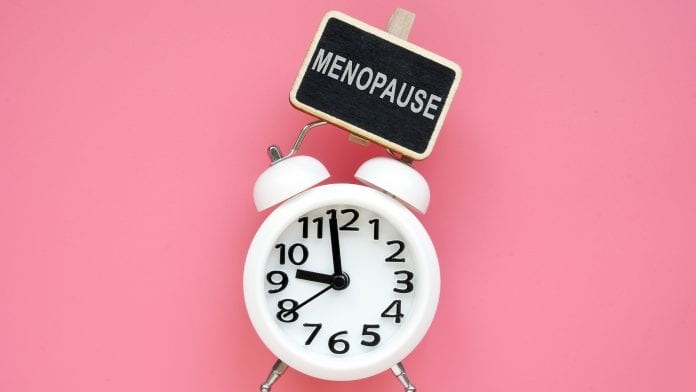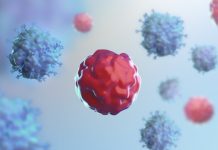
Nearly 40% of menopausal women are being prescribed antidepressants to help manage their symptoms, despite four out of five describing the treatment as ‘inappropriate.’
According to a survey by nutritionist, author, and founder of the Women’s Nutritional Advisory Service, Maryon Stewart, nearly 40% of women reported not seeking help from their doctor to treat menopause symptoms and nine out of 10 women in the early stages of menopause want to be offered a natural alternative to HRT.
Inappropriately prescribing to menopausal women
The What Women Want at Menopause survey, released recently, finds that women are increasingly reluctant to visit the doctor over fears they will not receive the right advice or treatment, as choices of medication for menopause are limited.
Healthcare expert and pioneer of the Natural Menopause Movement Maryon Stewart said she carried out the survey to demonstrate the urgent need to “provide more women with better support and information about their natural, science-based options when it comes to menopause.”
In total, 1,101 U.K.-based women aged 42-55 years were surveyed, with the results showing only three in 10 women are satisfied with the help and advice on menopause they got from their GP, while 84% of respondents say their doctor didn’t sufficiently answer their questions.
“Inappropriate prescriptions for antidepressants is, quite frankly, insulting”
More than a third of the women reported being prescribed antidepressants for menopause – despite nearly 80% feeling the treatment was inappropriate for their symptoms. Less than half (41%) were prescribed HRT, although 14% of those didn’t take it. Of the women who did, more than half reported side-effects, including constant bleeding, breast lumps, severe anxiety and a sense of being unwell.
More than 90% of all respondents reported wanting advice on natural, science-based alternatives to HRT to manage their symptoms.
While antidepressants are the front-line treatment for perimenopausal depression, some studies have found that they’re not always effective.
There are around 13 million perimenopausal or menopausal women in the U.K. – one-third of the U.K. female population – 80% of whom are in full-time or part-time work.
A recent report revealed three out of five (59%) working women between the ages of 45 and 55 who are experiencing menopause symptoms say it has a negative impact on their work.
Stewart said: “As an expert in women’s hormonal health, I am deeply concerned – but not surprised – to learn that so many women are frustrated by the apparent lack of support, although doctors are not to blame.
“I speak to countless clients who feel that their lives have been completely turned upside down by the menopause, and for this to be compounded with inappropriate prescriptions for antidepressants is, quite frankly, insulting.
“There are natural solutions available, involving making changes to diet, exercise, and lifestyle, which can not only alleviate menopause symptoms in a matter of months but may help protect women against heart disease and osteoporosis, as well as dementia.”
Health professionals need more education
Dr Hina Sra, consultant obstetrician and gynaecologist at Cosmebeauté, added: “The only treatment that we medical professionals have to offer for menopause is HRT. When faced with women who cannot take it – for whatever reason – you find yourself at a standstill.
“Menopause affects every woman, and it can really impact their quality of life. We as health professionals need more education about alternative methods of treating these women, including exercise and nutrition.
“Such education will help all of us to give the best treatment to these women so that we can support and manage our patients more effectively.”
About Maryon Stewart
Maryon Stewart is a world-renowned healthcare expert who is referred to as the Pioneer of the Natural Menopause Movement. Using her years of knowledge and expertise, she coaches women in understanding the information, tools and techniques needed to manage their menopause symptoms, helping many become completely symptom-free.








